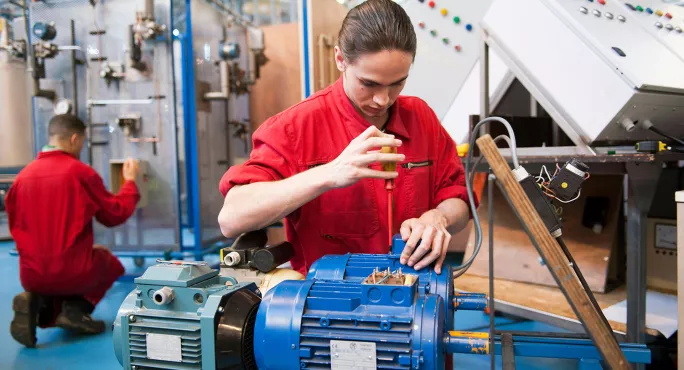The compulsory skills participation age should be raised to 18 and Scotland should aim to see every young person under 21 engaged in education or training, according to a new report.
According to thinktank IPPR Scotland, the current school leaving age of 16 should be replaced, and every child should be in learning, whether in the workplace or the classroom.
Ensuring that the Scottish economy has the skills it needs for the future could cost £225 million each year by 2025, the thinktank says in a report, published today.
IPPR Scotland says the Scottish skills system is not prepared for future disruptions to the economy from automation and ageing, with around one in seven workers under the age of 25 currently employed in insecure work, and 19 per cent of all workers in Scotland paid under the real living wage.
The thinktank is calling for a target to see an additional 100,000 learners over 21 engaged in the skills system each year by 2025, which would bring participation rates in Scotland to among the best in Europe. Such a move would cost around £200 million per year.
Boosting Scotland’s skills
There should also be an enhanced lndividual Training Account, worth £1,000 per year, to fund training aimed at boosting pay and delivering promotions for 30,000 workers each year. This would cost £25 million per year.
The report also says a new Committee on the Future Economy should be set up in Scotland, based on the Singapore CoFE established in 2016, to develop a strategy and vision to ready Scotland for automation and ageing.
Russell Gunson, director of IPPR Scotland, said:“If the last 30 years have been, rightly, about expanding higher education to help Scotland to transition to a knowledge-led economy, then the next 30 years need to be about expanding lifelong learning to take the opportunities of automation and ageing.”
Mr Gunson said that preparing for automation and ageing should be the top priority for Scotland. “From our research, we believe that investment in education and training, and lifelong learning in particular, will be the single most important way to get Scotland ready to take the advantages coming our way through technological change,” he added.
“Scotland’s education and training system has some great strengths but it has a long way to go before it’s ready. There is no doubt that preparing for this scale of change will be expensive and won’t come cheap.However, the costs of not investing could be far more significant than doing so.
“By investing in in-work training, and delivering no less than a revolution in lifelong learning over the coming years, Scotland can be among the best prepared in the world to take the opportunities on offer from ageing, automation and technological change over the coming years, delivering a stronger economy that builds justice in at its heart.”
‘Lifelong learning is fundamental’
Shona Struthers, chief executive of Colleges Scotland, said the warnings from IPPR Scotland demanded “an urgent response”. “Colleges in Scotland have long warned of the need to ensure high-quality technical and professional education and skills training is available at the right time, in the right place, to allow individuals to gain the skills required to progress in the workplace and meet dynamic and evolving needs of industry.
“IPPR Scotland’s report highlights what colleges have always known - that access to lifelong learning opportunities are fundamental to delivering sustainable and inclusive economic growth.”
Ms Struthers added: “The challenges facing the Scottish workforce are significant but not insurmountable. With the right investment, partnership working and a willingness to effect change, the education and skills system will be the bedrock of a progressive, ambitious and successful society.”




